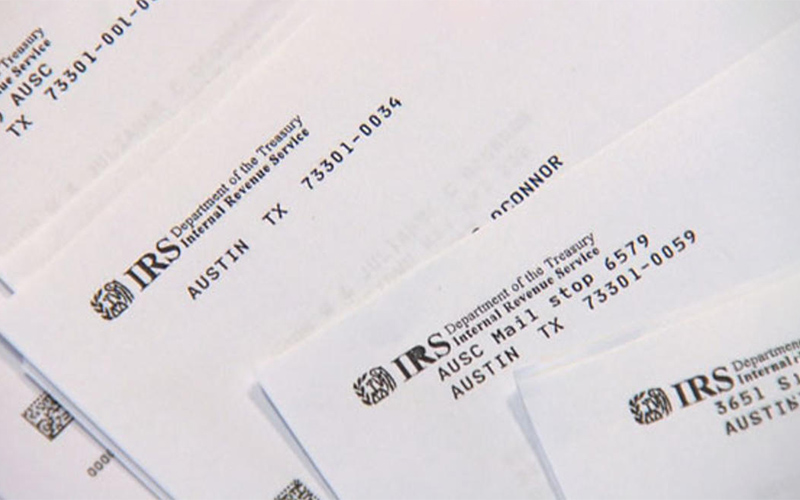From CBS News/Moneywatch — BY AIMEE PICCHI —
The IRS this month will send millions of letters to taxpayers whom it believes underpaid the tax agency. It’s important to pay attention to this letter — called a CP14 — because ignoring it could lead to penalties.
The IRS issues roughly 9 million of these letters annually. This year, the letter is unusual given that agency has stopped sending many types of notices and letters due to the pandemic.
The IRS in February announced it would halt sending more than 10 types of letters that cover issues such as failure to file a tax return to under-withholding taxes.
The IRS sends a CP14 if it calculates that a taxpayer has a balance of more than $5 on their account, which can be related to a number of issues, such as failing to report some income or failure to pay a balance in full.
The CP14 will tell you how much you owe and request payment within 21 days, according to the Taxpayer Advocate Service, which notes that the letter is one of the most common notices sent to taxpayers.
“The CP14 is a balance of taxes due notice, and that is why they aren’t suspended,” the TAS said. “It’s in the taxpayer’s interest to know that they owe money so that those penalties and interest don’t progress.”
The IRS is required to send CP14 notices within 60 days after the tax agency assesses a tax liability, which means people who filed their taxes leading up to the mid-April tax deadline could get the letters in June.
What happens if I don’t pay?
First, if you pay the full amount by the due date printed on the CP14, the IRS says it won’t charge you any interest. After that, interest will start accruing on your balance.
Steber advises taxpayers to read the letter carefully and take steps to address the balance due in order to avoid added costs and trouble.
The IRS charges 0.5% per month on unpaid taxes, up to a maximum of 25% of the total balance due, which can add up. However, if you don’t pay the amount due within 60 days, the IRS can move to collect on the balance and even place a lien on your property, such your home or your car.
“The IRS is good at a lot of things, and one of the things they are really good at is ultimately getting their money,” the TAS warns.
What should I do if I can’t afford to pay?
The IRS says it will work with taxpayers to set up a payment plan. The IRS can set that up through an online application.
The IRS says taxpayers dealing with financial hardship can also ask for a temporary delay of collection until they get back on their feet (See the IRS’ website for more information on applying for a delay.)
What if I think the CP14 letter is wrong?
Contact the IRS if you believe the notice is incorrect. But be prepared to document your case, such as through records of payment, if you have already paid the tax that the IRS contends it is owed.
The CP14 letter will provide a number for you to contact the IRS, but he noted that the agency has been difficult to reach on the phone. You can also mail the IRS through the contact information that will be included in the letter, along with your documentation.
KM&M CPAs: Expert individual and business accounting service
Our accounting experts at KM&M CPAs are available to handle all your individual and business accounting services. Should you receive a CP14 letter and need advice, contact us. Reach us to schedule an appointment by calling 419-756-3211, sending an email to kmm@kmmcpas.com, or by filling out our contact form at this link.

